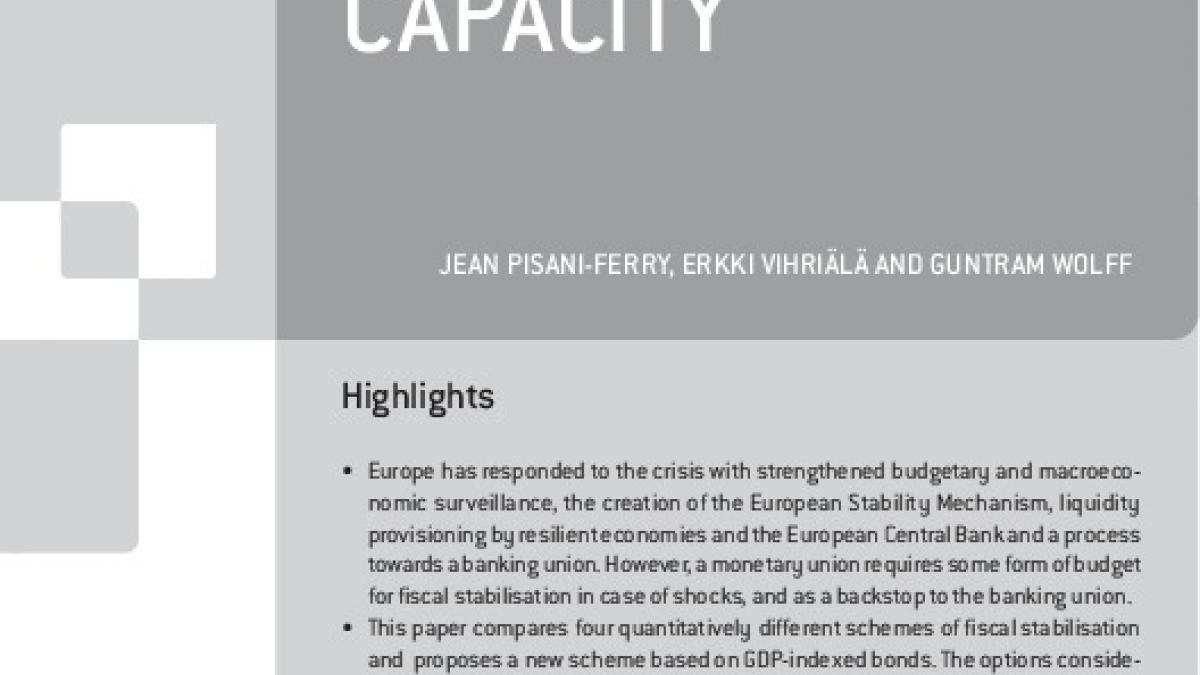Options for a Euro-area fiscal capacity
This Policy Contribution is based on a briefing paper for the European Parliament Economic and Monetary Affairs Committee’s Monetary Dialogue: Europe

Europe has responded to the crisis with strengthened budgetary and macroeconomic surveillance, the creation of the European Stability Mechanism, liquidity provisioning by resilient economies and the European Central Bank and a process towards a banking union. However, a monetary union requires some form of budget for fiscal stabilisation in case of shocks, and as a backstop to the banking union.
This paper compares four quantitatively different schemes of fiscal stabilisation and proposes a new scheme based on GDP-indexed bonds. The options considered are: (i) A federal budget with unemployment and corporate taxes shifted to euro-area level; (ii) a support scheme based on deviations from potential output;(iii) an insurance scheme via which governments would issue bonds indexed to GDP, and (iv) a scheme in which access to jointly guaranteed borrowing is combined with gradual withdrawal of fiscal sovereignty.
Our comparison is based on strong assumptions. We carry out a preliminary, limited simulation of how the debt-to-GDP ratio would have developed between 2008-14 under the four schemes for Greece, Ireland, Portugal, Spain and an ‘average’ country.The schemes have varying implications in each case for debt sustainability.



